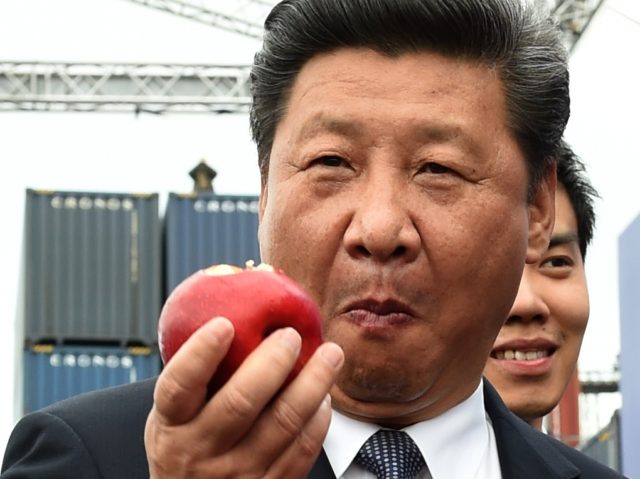Recent Chinese media reports indicate that the Chinese Communist Party (CCP) is forcing universities in the country to incorporate “Xi Jinping Thought,” or the socialist philosophies and writings of Chinese leader Xi Jinping, into their curriculum.
A local news site in eastern China’s Shandong province reported on November 10 that Shandong’s Yantai Vocational College “has built three teams for adding the readings to its curriculum (teaching Xi’s theory),” Voice of America (VOA) reported on Wednesday.
“In many cases, the new content, commonly called ‘Xi Jinping Thought,’ are being added to courses that already study his writings on ‘the four self-confidences’ that he proposed in 2016. They outline core beliefs in Xi’s socialist theory, social system, culture and road, which refers to ‘socialist road with Chinese characteristics’ [sic],” VOA detailed.
At least 37 key colleges and universities across China offered a course titled, “An Overview of Socialist Thought with Chinese Characteristics in Xi Jinping’s New Era,” at the start of the current fall 2020 semester, according to the CCP’s theoretical journal, Seeking Truth. Included among the 37 schools offering the course were the highly regarded Peking University and Tsinghua University.
The CCP has for decades emphasized the importance of collective leadership, especially as power regularly traded hands from one chosen leader of China’s ruling Communist Party to the next. Recent efforts by the CCP to control the college curriculum throughout China mark a shift in this approach under Xi. Since becoming China’s dictator in 2012, Xi has worked to consolidate power around himself. He has created a personality cult by strategically inserting his own political opinions and writings into the Communist Party’s, and the nation’s constitution.
China’s government in 2019 released a smartphone app teaching “Xi Jinping Thought” and socialist theories called Study the Great Nation. The Communist Party claims that it is one of China’s most popular apps. Some observers likened the app to previous iterations of CCP propaganda such as Chairman Mao’s Little Red Book of writings and quotations widely circulated during China’s violent Cultural Revolution (1966-76).
The Communist Party’s new focus on controlling the ideological education taught on college campuses coincides with recent reports “that internal documents from Chinese universities show there are new efforts to track public opinion on university campuses,” VOA noted on Wednesday.
One set of internal documents revealed that “the Heilongjiang Institute of Architecture and Vocational Technology summarized ‘eight risks’ for political education in universities,” according to the U.S. government-funded news broadcaster. “These eight risks include foreign non-governmental organizations stepping up contacts with students, foreign ‘hostile elements’ promoting ‘street politics’ activities, as well as what it called weaknesses in students’ ideology and difficulties in controlling the content of teachers’ training outside the school.”
China’s Ministry of Education on November 3 issued a Declaration on the Construction of New Liberal Arts, which “proposed creating a new approach for teaching philosophy and social sciences that it argues would enhance the country’s cultural soft power,” according to VOA. “This includes incorporating more of Xi’s writings and ideology into the liberal arts curriculum.”
VOA further cited recent Chinese media reports in which Xu Xianming, an official at China’s education ministry, emphasized that “liberal arts should be shifted to be under the leadership of the Chinese discourse system and out from under the leadership of the western discourse system. China’s new liberal arts doesn’t exist if the shift is not completed.”

COMMENTS
Please let us know if you're having issues with commenting.